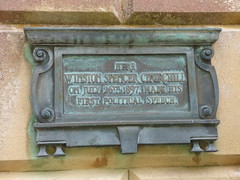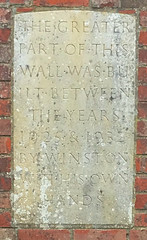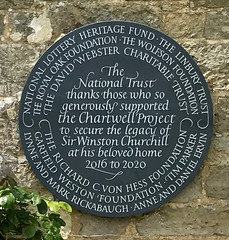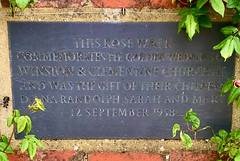Sir Rt Hon. Winston Churchill CH KG OM PC FRS TD RA


Sir Rt Hon. Winston Churchill CH KG OM PC FRS TD RA
(1874-1965)
Royal Academician, Fellow of the Royal Society, Privy Counsellor (from 1907), Companion of Honour (from 1922), Territorial Decoration recipient (from 1924), 60th Prime Minister of the United Kingdom (1940-1945), Order of Merit recipient (from 1946), Deputy Lieutenant (1949), 62nd Prime Minister of the United Kingdom (1951-1955), 912th Knight of the Order of the Garter (from 1953), and Nobel Literature Laureate (from 1953)
Family tree
Commemorated on 28 plaques
Sir Winston Churchill KG 1874-1965 Prime Minister lived and died here
28 Hyde Park Gate, Kensington Gore, Kensington and Chelsea, SW7, London, United Kingdom where they lived and died (1965)
Sir Winston Churchill, K.G. (1874-1965) Prime Minister was educated at The Misses Thompson's Preparatory School 1883-1885
Lansdowne Road, Hove, United Kingdom where they educated
Lansworth House 29-30 Brunswick Road where the Rt Hon Winston Edward Spencer Churchill K.G. was educated at the Misses Thompson Preparatory School in 1883 - 1884 -1885
29-30 Brunswick Road, Hove, United Kingdom where they educated
On this site in 1899 George Warne 1864-1916 founded this hotel in part of York Terrace Warnes was Worthing's premier hotel famous visitors included King Edward VII King George V Emperor Haile Selassie and his family Winston Churchill General Montgomery General Eisenhower John Philip Sousa Warnes closed in 1985 burned down 1987
Marine Parade, Worthing, United Kingdom where they visited
Sir Winston Churchill spoke here at the former Caxton Hall 1937-1942
Caxton Hall, London, United Kingdom where they spoke
Sir Winston Churchill lived here 1909-1913
34 Eccleston Square, London, United Kingdom where they lived
Churchill's Stone This stone represents the one on which Churchill stood to address Bletchley Park staff during his visit of Sixth September 1941
Bletchley Park (outside Bletchley Park House), Bletchley, United Kingdom where they addressed the staff (1941)
Sir Winston Churchill lived in a house on this site 1921-1924
3 Sussex Square, W2, London, United Kingdom where they was
Chartwell home of Sir Winston Churchill was bought & presented to the nation in 1947 by a group of his friends & admirers whose names are recorded here in gratitude by the National Trust. Sir Edward Peacock. Viscount Camrose. Viscount Bearsted. Sir Hugo Cunliffe. Owen Lord Glendyne. Lord Leathers. Mr James De Rothschild. Sir Frederick Stewart. Mr J. Arthur Rank. Viscount Partal of Laverstoke. Sir Edward Mountain. Sir James Lithgow. Lord Kenilworth. Lord Bicester. Sir James Caird. Lord Catto. Viscount Nuffield.
Chartwell, Mapleton Road, Westerham, United Kingdom where they lived
Winston and Clementine Churchill lived here from 1930-1939
1-12 Morpeth Mansions, Morpeth Terrace, SW1, London, United Kingdom where they lived (1930-1939)
Wintergarden. Largely inspired by the design of the Crystal Palace, the Wintergarden was built in 1897 for the Royal Baths development. It was largely demolished in 1938 but the original entrance and staircase were preserved. In December 1900, Winston Churchill spoke here of his experience as a prisoner during the Boer War.
Parliament Street, Harrogate, United Kingdom where they spoke (1900)
Droxford Station. In a special train at this station, the Rt.Hon. Sir Winston Churchill MP then Prime Minister of the UK spent some days with his staff prior to the invasion of Europe on D Day 6th June 1944
Station Road, Droxford, United Kingdom where they stayed (1944)
Sir Winston Churchill 1874-1965 Lived Here 1880-1883
29 St James's Place, SW1A, London, United Kingdom where they lived (1880-1883)
Hotel Majestic. The Hotel Majestic opened on 18 July 1900 as the finest hotel of the world's greatest spa. Built by Frederick hotels and designed by London architect G. D. Martin, the majestic has, for over a century, been the preferred address of visitors such as Winston Churchill, Edward Elgar, Errol Flynn, 'James Herriot', G. B. Shaw and several Prime-Ministers. Bombed on 12 July 1940, the Hotel Majestic served as an RAF Reception Centre during the Second World War. It was extensively refurbished between 1998 and 2002.
Ripon Road, Harrogate, United Kingdom where they visited
Winston S Churchill Epping Mp (1924-1945) and war time Prime Minister. On this site stood the Victoria Buildings from which Mr Churchill addressed the people of Epping as their MP
M&S, High Street, Epping, United Kingdom where they spoke
Sir Winston Churchill Britain's wartime Prime Minister MP for Epping 1924-1945
M&S, High Street, Epping, United Kingdom where they spoke
Sir Winston S. Churchill 1874-1965 Member of Parliament Oldham 1900-1906. On the steps of the Town Hall Winston Churchill started his parliamentary career when he was declared Member of Parliament for Oldham in 1900
Town Hall, Oldham, United Kingdom where they was
Winston Churchill lay in state here from the Twenty seventh of January until his burial at Bladon on the Thirtieth of January Nineteen hundred and Sixty five
Westminster Hall, London, United Kingdom where they lay in state (1965)
Guests at this hotel have included King Henry VII, Prime Ministers Ramsay MacDonald and Winston Churchill, author George Bernard Shaw and Queen Anne of Denmark
Sadler Street, Wells, United Kingdom where they stayed
Sir Winston Churchill Prime Minister 1940-1945 and 1951-1955 Member of parliament for the city of DUndee from 9th May 1908 to 15th November 1922 This plaque was erected to commemorate the centenary of his election 9th May 2008 REMEMBER WINSTON CHURCHILL Unveiled by Winston Churchill's daughter The Lady Soames, L.G., D.B.E.
118 Nethergate, Dundee, United Kingdom where they was near
St George's Hall. Bradford's first public building was designed by celebrated architects Henry Francis Lockwood and William Mawson, and financed by public subscription. It has hosted, amongst others, Charles Dickens, Winston Churchill and Harry Houdini, and is one of the oldest concert halls still in use in Europe. Erected 1853
St George's Hall, Bradford, United Kingdom where they performed
D-Day 6 June 1944, the Normandy landings were planned by General Montgomery and others in St Paul's School, which occupied this site from 1884 to 1968. On 15 May 1944, the final invasion plan was presented to General Eisenhower and senior allied commanders in the school lecture theatre, in the presence of King George VI and the Prime Minister, Winston Churchill
Gate pier, St Paul's Gardens and Open Space, Hammersmith Road, London, United Kingdom where they was
To honour the memory of Sir Winston Churchill 1874-1965 Prime Minister 1940-1945 & 1951-1955 World Statesman who addressed meetings at this venue
Victoria Hall, 6 Bury Road, Old Harlow (St. John's Avenue elevation), Harlow, United Kingdom where they was
1878 Penshurst built c. 1920 Churchill stayed c. 1942 Canadian Command 1976 renamed Les Mouettes' by the Smithemans
, Seaford, United Kingdom where they stayed (1920)
Here Winston Spencer Churchill on July 26th 1897, made his first political speech.
The American Museum - Claverton Manor, Bath, United Kingdom where they made his first political speech (1897)
The greater part of this wall was built between the years 1925 & 1932 by Winston by his own hands
Mapleton Rd, Westerham, Chartwell, United Kingdom where they was
The National Trust thanks those who so generously supported the Chartwell Project to secure the legacy of Sir Winston Churchill at his beloved home 2016 to 2020
Mapleton Rd, Westerham, Chartwell, United Kingdom where they was
This rose walk commemorates the golden wedding of Winston & Clementine Churchill and was the gift of their children Diana Randolph Sarah and Mary 12 September 1958
Mapleton Rd, Westerham, United Kingdom where they was


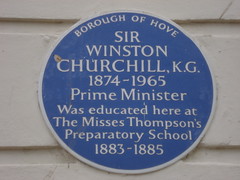
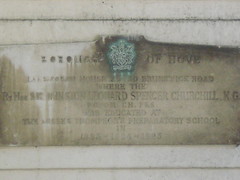
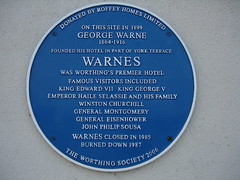

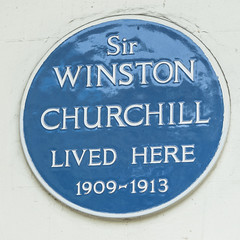
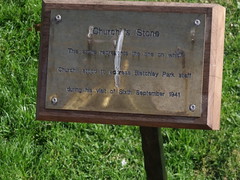
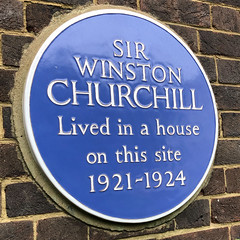




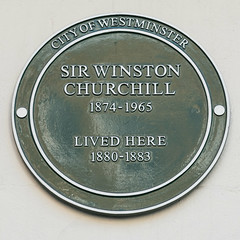



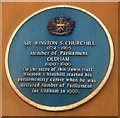



.jpg?width=250)
.jpg?width=250)

